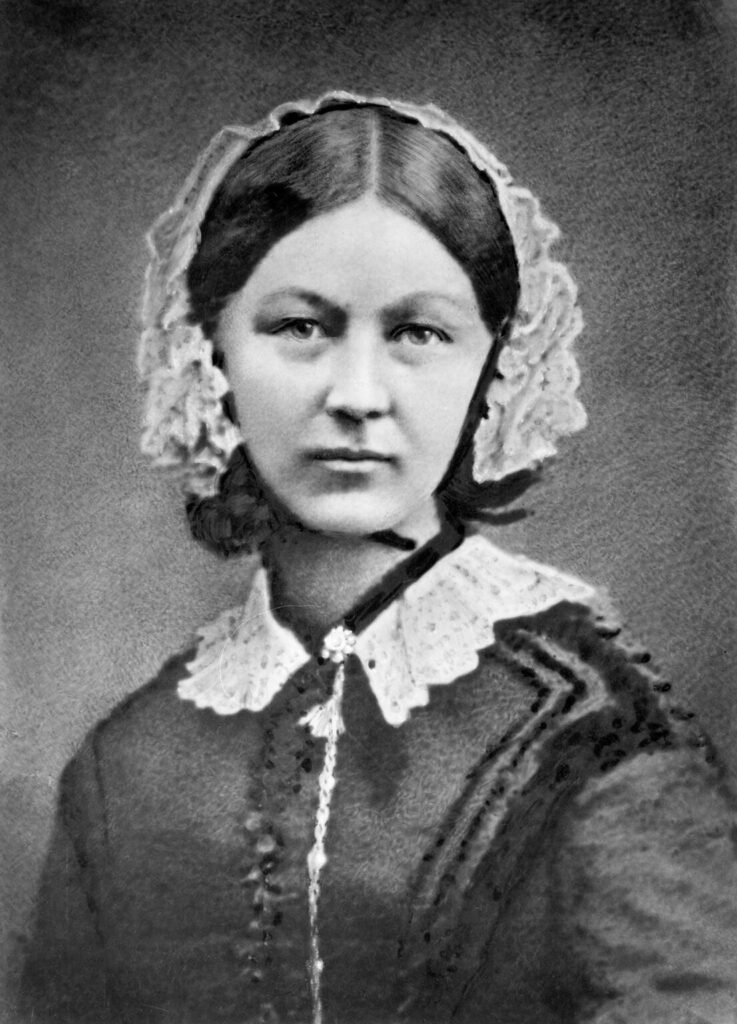Florence Nightingale: The Transformational Legacy in Nursing and Public Health

“Beacon Of Hope”
Last week, I had to visit my friend in the hospital after she had an accident. I was pretty worried about her, but seeing that she was in good hands eased my mind a bit.
During my visits, I was really impressed by the amazing nursing care she was receiving. Those nurses were just incredible — so patient, dedicated, and focused. Have you ever had an experience like that? Where the care you or someone you know received just blew you away?
I couldn’t help but wonder how they managed to do it all.
So, I decided to ask one of them, and she told me something really interesting. She said a lot of the credit for their incredible nursing care goes to Florence Nightingale. You’ve probably heard of her, right? She’s often called the “lady with the lamp” and is considered the greatest nurse of all time.
Florence Nightingale lived during the Victorian era, a time when nurses were ranked even below maids. Can you imagine that? Their main job was basically cleaning windows and mopping floors.
But Florence changed all of that.
It all started during the Crimean War in 1854. Journalists were reporting from the battlefield for the first time, and people back home were shocked to hear about the terrible conditions the soldiers were living in. They were basically left to die, and no one seemed to care.
When the British government realized how embarrassing this was, they asked Florence Nightingale for help. She was tasked with taking care of the British soldiers who were injured during the war.
Florence and her team of 38 female nurses arrived at the hospital in Scutari, Turkey, ready to make a difference. But let me tell you, the hospital was a complete mess. There was no medication, the patients were sharing beds, and there was even a sewer running under the building. It was disgusting.
But Florence didn’t let any of that stop her. Even though the male doctors didn’t want to listen to her, she didn’t give up.
Have you ever been in a situation where you felt like no one was listening to you? How did you handle it?
She started walking around the hospital at night, accompanied by a servant, and began providing care and compassion to the soldiers. She made sure they knew that they mattered, and her actions quickly made her famous back home in Britain.
Florence and her team worked tirelessly to clean up the hospital and make it more habitable. They provided clean bedding and bandages, and they showed compassion to the injured and dying soldiers.
But it wasn’t easy. Florence herself fell ill with a fever, but even that couldn’t stop her. She continued to work from her bed, writing letters and organizing for change.
One of the things she focused on was improving the hospital’s sanitation. She realized that poor sanitary conditions were killing more soldiers than their actual injuries.
Florence was a master at collecting and analyzing data, and she used this skill to make a real difference. She wrote an 830-page report called “Notes on Matters Affecting the Health, Efficiency, and Hospital Administration of the British Army,” where she laid out all of her findings in detail.
Thanks to Florence’s hard work, the death rate at the hospital started to drop, and conditions began to improve. She even worked with architects to design new hospitals and set up nursing schools to train more nurses.
But Florence’s impact wasn’t just limited to nursing. She also wrote about religion, philosophy, and the position of women in society. She was the first female member of the Statistical Society of London, and she broke many of the conventions of her time.
Florence Nightingale truly was an incredible woman. She revolutionized the field of nursing, reformed army medical services, and pioneered the visual presentation of statistics. Her work laid the foundation for evidence-based nursing and modern healthcare as we know it.
So, the next time you’re in a hospital and you see a nurse doing an amazing job, remember Florence Nightingale. She may have lived over a hundred years ago, but her legacy lives on in every nurse who follows in her footsteps. And remember, we all face our own “Scutari” in life. It’s up to us how we handle it and turn it into something positive.
–Nidhi Raj is an independent writing professional, storyteller, and mother with a keen interest in women’s issues and International Relations.


/shethepeople/media/media_files/QW5X15ZIvugtdtfkAHEQ.png)






/shethepeople/media/media_files/uimd693ZwtCPKUczhtsy.png)